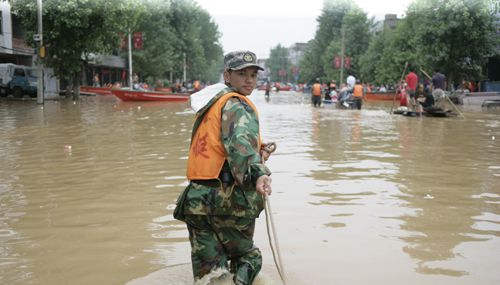英国水域面临南欧物种入侵
|
Five of the most high-risk freshwater invaders from the Ponto-Caspian region around Turkey and Ukraine are now in Britain -- including the quagga mussel, confirmed just two weeks ago on 1 October in the Wraysbury River near Heathrow airport. Researchers say that, with at least ten more of these high-risk species established just across the channel in Dutch ports, Britain could be on the brink of what they describe as an 'invasional meltdown': as positive interactions between invading species cause booming populations that colonise ecosystems -- with devastating consequences for native species. The authors of a new study on 23 of high-risk invasive species, published today in the Journal of Applied Ecology, describe Britain's need to confront the Ponto-Caspian problem -- named for the invaders' homelands of the Black, Azov and Caspian seas -- as a "vital element for national biosecurity." They say monitoring efforts should be focused on areas at most risk of multiple invasions: the lower reaches of the Rivers Great Ouse, Thames and Severn and the Broadlands, where shipping ballast water and ornamental plant trading is most likely to inadvertently deposit the cross-channel invaders. All of these areas are projected to see an influx of up to twenty Ponto-Caspian invading species in the near future. "Pretty much everything in our rivers and lakes is directly or indirectly vulnerable," said Dr David Aldridge, co-author from the University of Cambridge's Department of Zoology, who confirmed the quagga find. "The invader we are most concerned about is the quagga mussel, which alarmingly was first discovered in the UK just two weeks ago. This pest will smother and kill our native mussels, block water pipes and foul boat hulls. We are also really worried about Ponto-Caspian shrimps, which will eat our native shrimps," The most aggressive invasive shrimp have ominous monikers: the demon shrimp, bloody red shrimp and the notorious killer shrimp -- dubbed the 'pink peril'. These organisms have already been recorded in Britain, and experts warn they will act as a gateway for further species due to favourable inter-species interactions that facilitate invasion, such as food provision and 'commensalism' -- in which one species obtains benefits from another's place in an ecosystem. |








